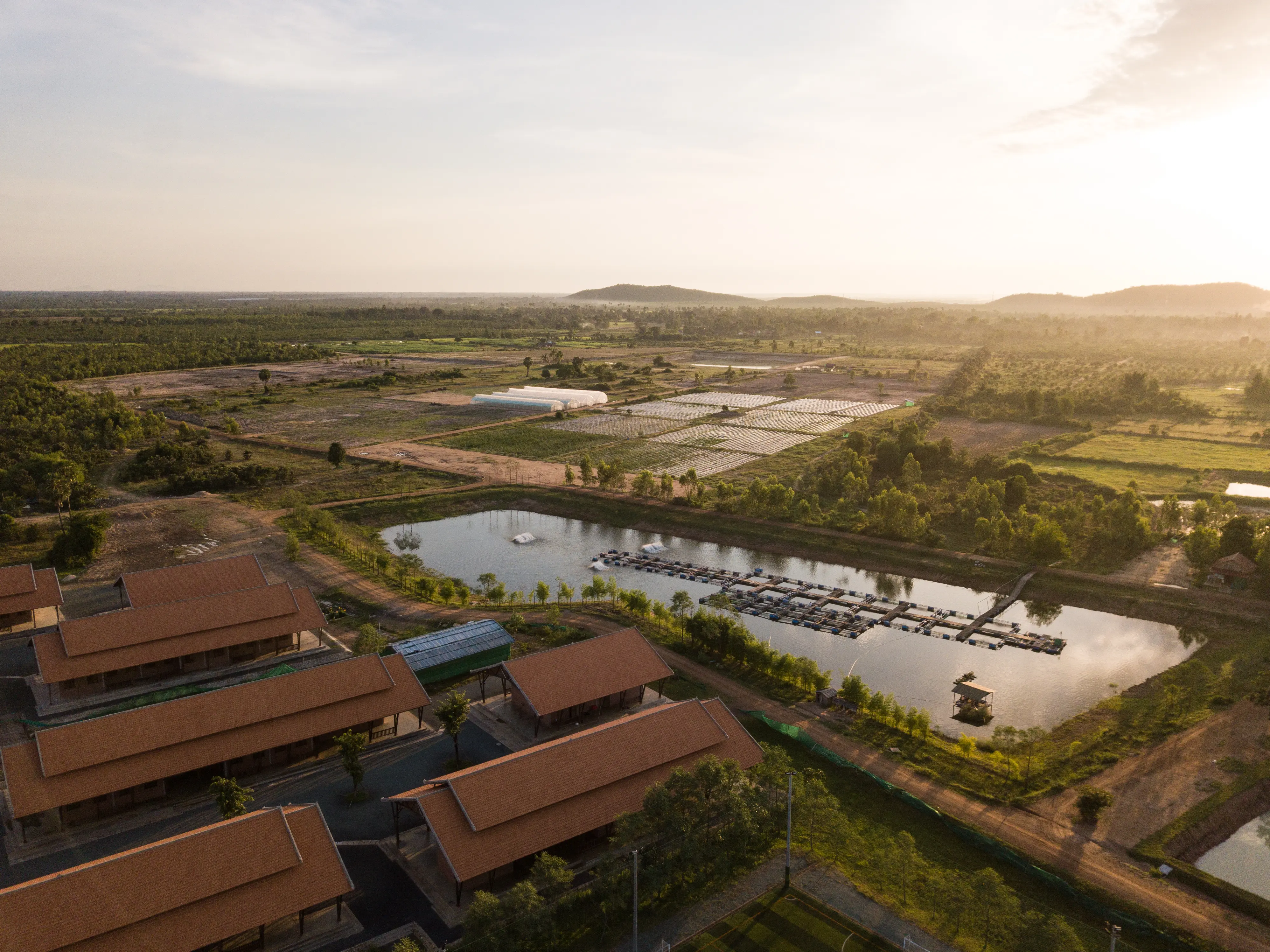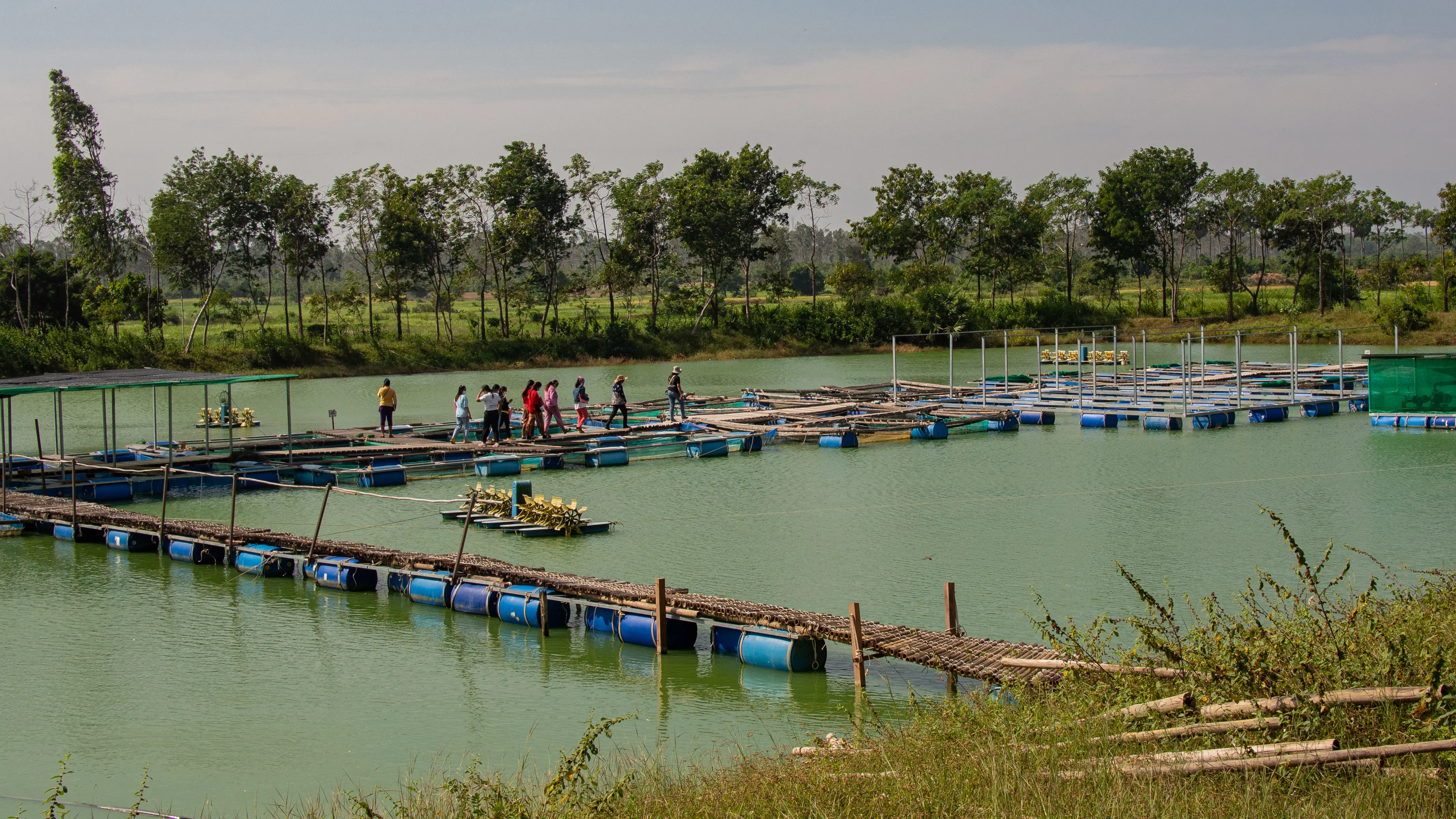Term-, Bachelor's-, Master's Theses and IZA
Term and Bachelor Theses
The selection of term papers and bachelor theses is done via the internal Complesis tool. Every semester, we announce various new theses in different fields of aquaculture and we are always happy to receive your suggestions for topics. We always offer the possibility to work on current research projects.
IZA internships
For development cooperation internships, we offer various topics, with the basic idea that content from studies can be put into practice. The current focus is on our projects in Cambodia. We are looking forward to your applications.
Master Theses
The following topics are examples of possible master thesis topics; in consultation with the tutors, these can basically be freely chosen and adapted to the specific interest and needs of the student. We are looking forward to your ideas!
- Ressource efficiency in aquaculture: optimized operation of recirculating aquaculture systems (PDF 271,2 KB)
- Sustainable fish production in Cambodia - integrated into agriculture(PDF 357,4 KB)
- Contact: Fridolin Tschudi
- Contact: Dominik Refardt
Completed master theses (selection)
Marina Mariotto (2022): Cultivation of PHB-producing cyanobacteria in wastewater on laboratory and pilot-scale
Cyanobacteria are photosynthetically active bacteria that are able to form a biopolymer (i.e. bioplastics). In her work, Marina tested which species also thrive in wastewater and which adaptations are necessary for this. She then scaled up production and successfully demonstrated that cultivation with wastewater in an open system outside the laboratory is possible. In doing so, she has made an important contribution to the development of sustainable alternatives for petroleum products.
Daniel Baier (2021): Cultivation of Paramecium caudatum as live feed in fish farming.
Good live feed is crucial in the rearing of many fish species. Daniel has tested a new organism with many advantages for this purpose: Paramecium caudatum. He has successfully refined their cultivation and transferred it to a larger scale.
Andreas Seitz (2021): Effect of feeding regimes and light intensities on size heterogeneity, fin damage and growth performance of juvenile European perch (Perca fluviatilis) in aquaculture
Andreas tested in a broad experiment how the well-being of fish in an aquaculture can be increased by simple means. To do this, he experimentally varied the feeding regime and lighting.
Luca Regazzoni (2019): Denitrification of nitrate using anaerobic liquid fish faeces digestion
Sludge and nitrate are two big waste items of a fish farm. Luca has been investigating a method that uses sludge from recirculating aquaculture systems as a source of energy to break down nitrate, thus neutralizing both wastes at the same time. He is currently developing the method further to make it ready for the market.
Sophia Egloff (2017): Algal fish feed - Cultivation of microalgae and feeding trials with juvenile tilapia.
Sophia has made aquaculture more sustainable. She has cultivated microalgae to reduce the animal content in fish feed and has also successfully used her innovative feed.


